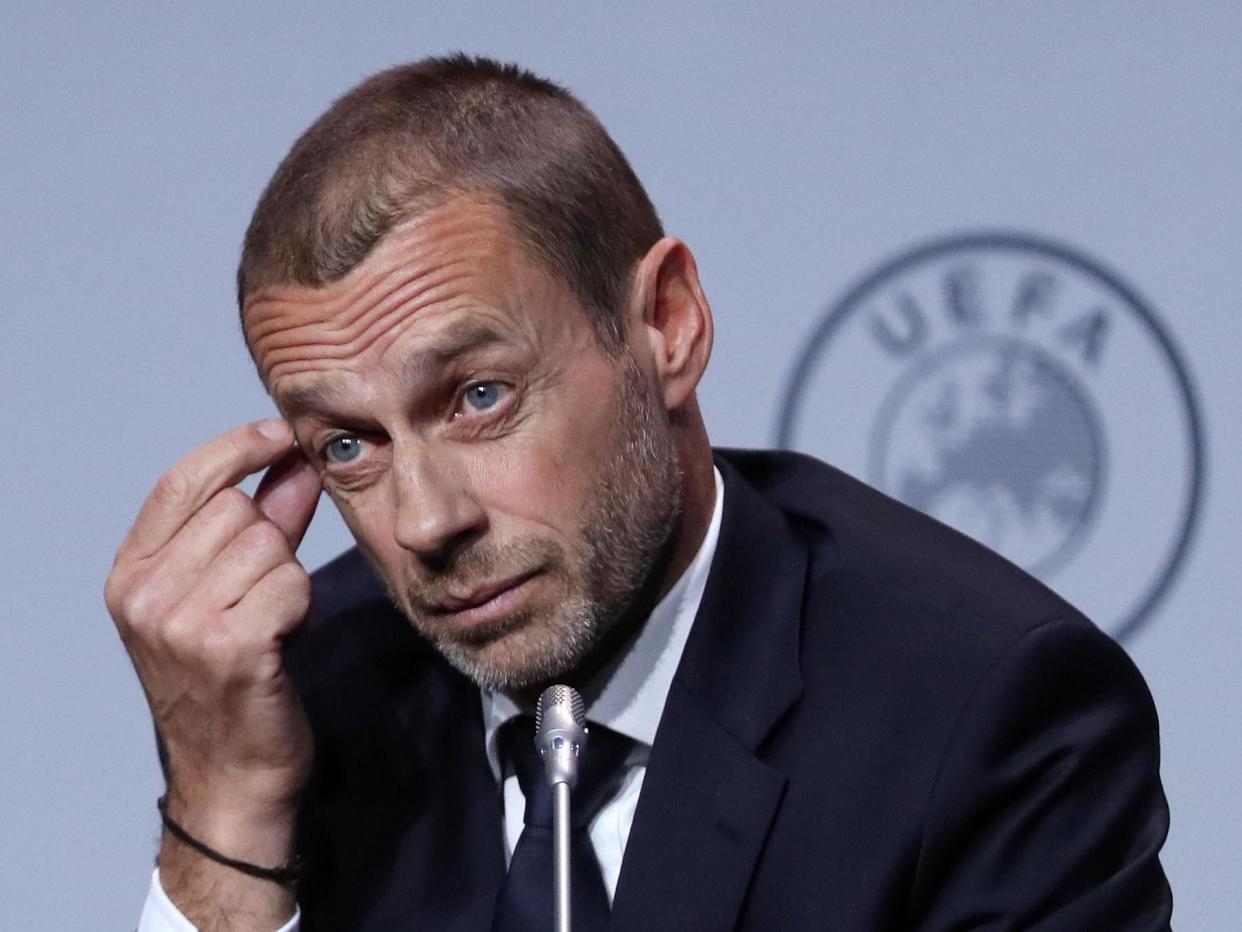Champions League and Europa League prepare for uncertain return to the spotlight

Already, at some of the clubs getting ready to “enter the bubble” of European football over the next few days, there have been jokes about forgetting passports. It’s been that long since many have travelled.
It’s been quite a while that Uefa have been preparing for all this. That is illustrated by one comment made by federation president Aleksander Ceferin on 17 June, when it was confirmed European football would be coming back. There was genuine hope within Uefa at that point that supporters may be able to attend the final stages of the Champions League in Lisbon and Europa League in Germany.
“We don’t know if only the local fans, if no fans, or even the fans from different clubs could travel to the venue,” Ceferin said. “As it looks now, if we were to decide now, then we would play without fans. We have to wait because the situation is changing every day, we have to see what the situation will be in August.
“The beginning of the final eight is almost two months from now, and remember what the situation was in Europe two months ago. Things are changing but we will have to decide before the draw.”
The reality is things haven’t changed enough. Uefa was among those quietly hoping the situation would have improved by now.
Instead, Portugal – the hosts of the Champions League last eight – isn’t even on the travel green list of the United Kingdom, who could well have Manchester City and Chelsea there. Some of the countries with clubs involved have seen localised spikes. The return to “normality” – however long it takes – was never going to be linear, but there are a huge range of challenges to this.
Most of those, to be fair, don’t revolve around the final stages of the competitions in Lisbon and Germany. It is, in truth, relatively easy to stage localised games involving the wealthiest clubs in the world.
The Independent has been told the protocols will be much the same as the Premier League, with zones around each stadium. Those involved with traveling clubs naturally won’t be allowed leave the host country until their participation ends, and will have allotted hotels.
They’re all the details we’ve heard before, although maybe that shouldn’t be taken for granted given the extreme difficulty the USA has had in getting their sports going. It’s so bad, the future of some is at stake.
As regards the future of European football, however, much more relevant are the remaining pre-quarter-final knockout fixtures taking place over the next few days before the finals. Ties like Juventus-Lyon were a huge headache for Uefa, and some club figures had the sense they were treated as an afterthought amid the plans for the last eight, but a lot of consideration has gone into them.
They will involve a lot of less wealthy clubs going on international travel, usually only staying for two days, and are dependent on national governments giving special dispensation to elite sport. The latter is what is happening for Real Madrid’s second leg at Manchester City, after Spain was taken off England’s green list.
What happens in these games – which almost serve as pre-tournament qualifiers, in an odd way – is going to have to be the model for what’s next in European football, and next season.

It is absolutely imperative for Uefa they go well. Without that success, staging the federation’s elite events becomes impossible. They can’t just resort to a mini-World Cup at the end of every season – especially with the Europa League. The plan is for continental form to return in some traditional form next season – which will include complicated journeys to far-flung places. You only have to look at Tottenham Hotspur’s potential opponents for the Europa League preliminaries.
Uefa on Tuesday introduced a series of new regulations designed to facilitate the complications that come with the coronavirus, and what happens if new restrictions are suddenly placed on a competing country. There is the potential for abrupt disqualifications or automatic 3-0 defeats if the host club can’t offer viable solutions. Most games should be mitigated by the fact governments are granting these dispensations to elite sport – but some of the necessary travel may not be possible for clubs from financially weaker countries. This could serve to widen economic gaps.
These are all challenges to come, that may start to become apparent over the next few days
In some ways, the remaining fixtures before the quarter-finals do offer a useful road test for what’s to come.
It is a right from a sporting integrity perspective that, say, Madrid have to travel to Manchester for their return, or Napoli to Barcelona.
It may also offer the foundation of European football going forward.
Read more
Napoli president raises concerns over Champions League game in Spain

 Yahoo News
Yahoo News 
